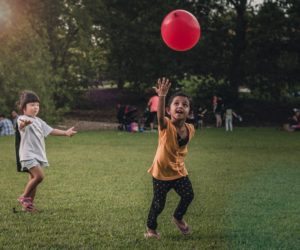Social Skills Activities for Children
Social skills are the platform for the skills we use to communicate and engage with other people. Our Brisbane Speech Pathologists work with children to improve social skills and oral language, however at home – parents have an important role to play!
Social skills include both verbal and non-verbal communication, through gestures and actions, body language, and facial expressions.
Nurturing social skills in children is important for them in developing the ability to effectively interact with a variety of different people throughout their lifespan, as well as build relationships with others.
Our Speech Pathologists recommend the following activities to support social skills development at home:
Have a Conversation
It is important to frequently interact with our young ones in a positive and genuine manner. When playing and/or talking with your child, ask them open-ended questions to encourage extended utterances (using further wh-questions to prompt for more information).
Make a lot of comments about what you are doing, and pause to allow your child to provide their own input. Make sure the conversation is fun and enjoyable for the child by balancing questions and comments, and accepting their ideas.
Labelling Emotions
When reading a book, watching a movie, or playing with your child, label the emotions the characters are feeling and explain why they are feeling this way. This helps the child to understand that different actions and events can lead to different emotions.
Ensure you also take time to explain the different perspectives of people if multiple characters respond differently to one event. This will help your child to learn that different people can have different thoughts and feelings.
Encourage Guessing
It is important to encourage children to ‘have a guess’ when they don’t know something, as this builds inferencing skills (important for social interactions).
You can do this through book reading with your child, asking them what they think might happen next, or what characters might do after an event. When your child asks a ‘why’ question, you can ask them to have a guess first before you respond.
Taking Turns
Engage your child in a variety of different games and activities where they must wait for their turn. This builds turn-taking skills, important for all conversations and social interactions.
Problem-Solve Together
Having the ability to problem-solve with other individuals is very important when trying to build/maintain friendships with others. You can do this by engaging your child in a rule-based game, such as card games and board games. Negotiate with your child what rules the game has, and how the players must play the game.
Most of all – have fun! Developing social skills allows us to enjoy the connection we have with our children. Make this connection the #1 focus, and enjoy the relationship that is developing.
For more information on the foundations that feed into strong social skills – read our blog here, or contact us for more information.
Thida Hantun
Speech Pathologist

